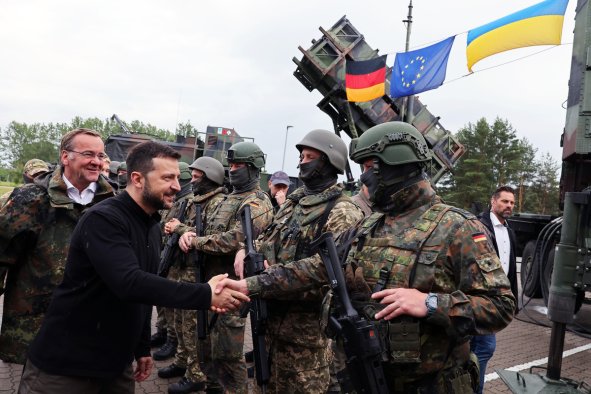Russia has dispatched a combat vessel to East Asian waters near U.S. allies Japan and South Korea for pointed patrols with a Chinese navy flotilla, Russia's state-run news agency Tass reported.
Russia's Pacific Fleet, which is headquartered in the closed town of Fokino on the Peter the Great Gulf in the Sea of Japan, said fleet corvette Sovershennyy had joined up on Thursday with three Chinese naval vessels in the East China Sea.
Russia and China's naval and air forces have held more than 80 exercises together in the past two decades, including some with other participants.
China's Defense Ministry has yet to publicly acknowledge the drills and could not be reached for comment after hours.
The 2,200-ton Steregushchiy-class warship was met by the Chinese navy's 7,500-ton Type 052D guided-missile destroyer Yinchuan, the 4,000-ton Type 054A frigate Hengshui, and the 20,500-ton Type 903 replenishment ship Weishanhu, according to a statement carried by Tass.
All three Chinese ships are assigned to the South Sea Fleet, headquartered in Zhanjiang, a port city on the South China Sea.
The Sovershennyy's deployment to China's eastern seas was detected a day earlier by Japan's Maritime Self-Defense Force, which dispatched the Hayabusa-class patrol boat JS Shirataka and a P-1 maritime patrol aircraft to track the Russian ship through the Tsushima Strait, the Japanese Defense Ministry's Joint Staff Office said on Thursday.
The quasi-allies were scheduled to train in anti-submarine warfare, anti-aircraft defense, and search and rescue, as part of their fourth annual joint patrols in the region, according to the Russian statement.
Russia's Pacific Fleet said the ships rendezvoused near South Korea's strategic Jeju Island, likely in similar waters where South Korean, Japanese and American forces recently held their Freedom Edge exercise—directed toward Kim Jong Un's North.
Pyongyang once counted Beijing as its only formal treaty ally, until Kim and Russian leader Vladimir Putin signed a breakthrough treaty last month pledging mutual military assistance.
The latest summertime maritime exercise was expected, with both countries having ramped up seasonal naval maneuvers in the Pacific, including those near one another.
Last August, Russian and Chinese navy ships together sailed 7,000 nautical miles through the Pacific and its marginal seas, along most of Japan's main islands in a repeat of the previous year's "show of force."
In June and December 2023, Japan and South Korea scrambled fighter jets to intercept Russian and Chinese aircraft, including nuclear-capable bombers, conducting joint air patrols.
The annual exercise aims to "strength naval cooperation between Russia and China, maintain peace and stability in the Asia-Pacific region, monitor maritime zones and protect the maritime economic activities of the Russian Federation and China," said Russia's Pacific Fleet.
On Wednesday, the leaders of North Korea's two powerful neighbors met in the Kazakh capital of Astana on the margins of the Shanghai Cooperation Organization summit.
Russia-China relations were experiencing "the best period in their history," Putin told Chinese counterpart Xi Jinping, according to a readout from the Kremlin.
"Our cooperation is not directed against anyone. We do not create any blocs or alliances; we are simply acting in the interests of our people," Putin said.
Xi pledged Beijing's support for Moscow's efforts to "prevent a new Cold War and oppose illegal unilateral sanctions and hegemonism," a Chinese Foreign Ministry readout said.
"China and Russia should continue to strengthen comprehensive strategic coordination, oppose external interference and jointly safeguard regional tranquility and stability," Xi said.
Disclaimer: The copyright of this article belongs to the original author. Reposting this article is solely for the purpose of information dissemination and does not constitute any investment advice. If there is any infringement, please contact us immediately. We will make corrections or deletions as necessary. Thank you.



